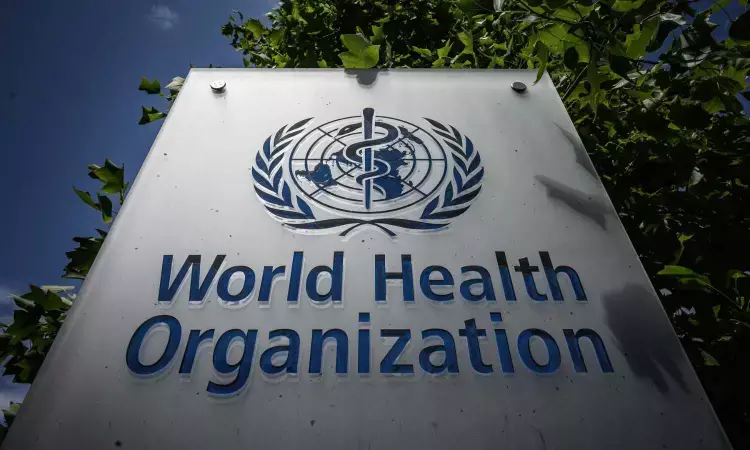- Home
- Medical news & Guidelines
- Anesthesiology
- Cardiology and CTVS
- Critical Care
- Dentistry
- Dermatology
- Diabetes and Endocrinology
- ENT
- Gastroenterology
- Medicine
- Nephrology
- Neurology
- Obstretics-Gynaecology
- Oncology
- Ophthalmology
- Orthopaedics
- Pediatrics-Neonatology
- Psychiatry
- Pulmonology
- Radiology
- Surgery
- Urology
- Laboratory Medicine
- Diet
- Nursing
- Paramedical
- Physiotherapy
- Health news
- Fact Check
- Bone Health Fact Check
- Brain Health Fact Check
- Cancer Related Fact Check
- Child Care Fact Check
- Dental and oral health fact check
- Diabetes and metabolic health fact check
- Diet and Nutrition Fact Check
- Eye and ENT Care Fact Check
- Fitness fact check
- Gut health fact check
- Heart health fact check
- Kidney health fact check
- Medical education fact check
- Men's health fact check
- Respiratory fact check
- Skin and hair care fact check
- Vaccine and Immunization fact check
- Women's health fact check
- AYUSH
- State News
- Andaman and Nicobar Islands
- Andhra Pradesh
- Arunachal Pradesh
- Assam
- Bihar
- Chandigarh
- Chattisgarh
- Dadra and Nagar Haveli
- Daman and Diu
- Delhi
- Goa
- Gujarat
- Haryana
- Himachal Pradesh
- Jammu & Kashmir
- Jharkhand
- Karnataka
- Kerala
- Ladakh
- Lakshadweep
- Madhya Pradesh
- Maharashtra
- Manipur
- Meghalaya
- Mizoram
- Nagaland
- Odisha
- Puducherry
- Punjab
- Rajasthan
- Sikkim
- Tamil Nadu
- Telangana
- Tripura
- Uttar Pradesh
- Uttrakhand
- West Bengal
- Medical Education
- Industry
COVID-19 boosters for high-risk adults 6-12 months after last dose: WHO

The agency said its committee of experts had also said that additional booster vaccines for COVID beyond the initial series - two shots and a booster - were no longer routinely recommended for "medium risk" people.
Geneva: The World Health Organization (WHO) on Tuesday changed its recommendations for COVID-19 vaccines, suggesting that high-risk populations should receive an additional dose 12 months after their last booster.
The health agency defined high-risk populations as older adults, as well as younger people with other significant risk factors. For this group, the agency recommends an additional shot of the vaccine either 6 or 12 months after the latest dose, based on factors such as age and immunocompromising conditions.
The WHO defined the group including healthy children and adolescents as "low priority" and urged countries to consider factors like disease burden before recommending the vaccination of this group.
The recommendations come as countries take differing approaches for their populations. Some high-income countries like the United Kingdom and Canada are already offering high-risk people COVID-19 boosters this spring, six months after their last dose.
The WHO said this was an option for a subset of people who were at particular risk, but its recommendations were intended as a best practice global guide.
The agency said its committee of experts had also said that additional booster vaccines for COVID beyond the initial series - two shots and a booster - were no longer routinely recommended for "medium risk" people.
Medical Dialogues team had earlier reported that Pfizer Inc. and BioNTech SE have announced that the U.S. Food and Drug Administration (FDA) granted emergency use authorization (EUA) to provide a single booster dose of the companies’ Omicron BA.4/BA.5-adapted bivalent COVID-19 vaccine in children 6 months through 4 years of age (also referred to as under 5 years of age) at least 2 months after completion of primary vaccination with three doses of the Pfizer-BioNTech COVID-19 Original Vaccine.
Also Read:Life-threatening bacteria found in Hyderabad company's cancer drug: WHO
Kajal Rajput joined Medical Dialogues as an Correspondent for the Latest Health News Section in 2019. She holds a Bachelor's degree in Arts from University of Delhi. She manly covers all the updates in health news, hospitals, doctors news, government policies and Health Ministry. She can be contacted at editorial@medicaldialogues.in Contact no. 011-43720751


